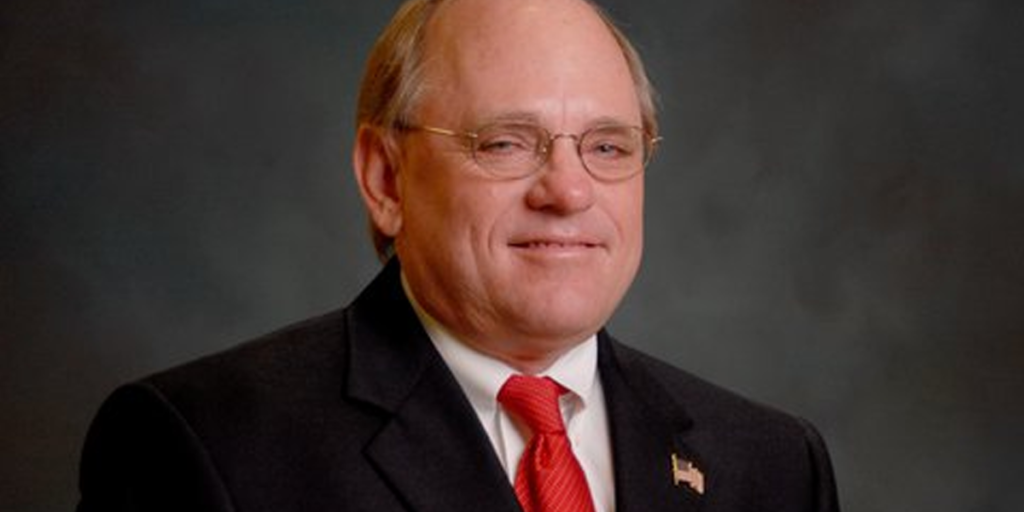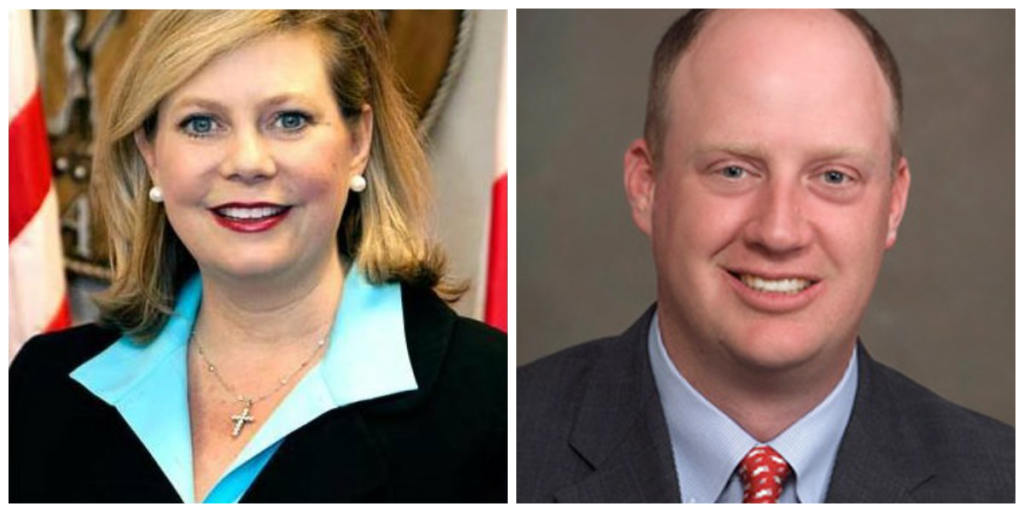University of Alabama wins fourth straight championship — in robotics

Make it four in a row. University of Alabama students who competed in a NASA robotics contest came away with the top prize again, making it four straight years for the team from UA to win. Alabama Astrobotics took the top prize at the NASA Robotic Mining Competition, besting student teams from more than 50 other institutions in the challenge to build a robot capable of navigating and excavating simulated Martian soil, or regolith. Made up of about 65 students from across eight disciplines including engineering and computer science, Alabama Astrobotics is the only team to win more than once in the nine-year history of the NASA contest, placing first in 2012, 2015, 2016, 2017 and, now, 2018. “Our team is just like a football team, you have seniors who graduate at the end and you have new people coming in at the beginning, so every year it’s a completely different team,” said team lead and electrical engineering student Max Eastepp. “For us to be successful this year says a lot for this team and says a lot for how we adapt to new challenges each year.” Eastepp, a native of New Orleans, said teamwork is critical as students worked from July through the contest this month to design the robot and tackle the new problem NASA presented this year. Contest organizers revised the rules and rubrics this year to reflect the discovery that water ice is prevalent throughout the Red Planet. The challenge is to mine the precious icy regolith, simulated with gravel in the contest, since water ice will provide oxygen, water and fuel for future off-world colonists. What that meant for the contest, though, is no points were awarded to teams for digging the top foot of regolith. Teams earned points for collecting the gravel 12 inches below the surface. UA’s robot mined more of the gravel than any other team in the contest, with many teams failing to mine any gravel. Also, Alabama Astrobotics was the only team with a robot that competed entirely autonomously, meaning the robot used computer programming to guide itself, mine and deposit the soil and gravel without any directions from students during the contest. The team placed first in five of nine categories: mining, autonomy, systems engineering paper, efficient use of communications power and outreach reports. In all, the students won $11,000 for use on next year’s robot. Dr. Kenneth Ricks, team adviser and associate professor of electrical and computer engineering, said the team’s consistent success comes from a culture of sticking to a plan – meeting deadlines, testing thoroughly before competition and paying attention to detail. “We know what needs to be done and when it needs to be done,” he said. “If our students buy into that process, they know they will have opportunities to be successful.” The team received funding from the Alabama Space Grant Consortium, NASA, Dynetics, Fitz-Thors Engineering, Crank N Chrome and the university. Republished with the permission of the Alabama Newscenter.
Women of Influence: Department of Early Childhood Education Secretary Jeana Ross

Few women in education have worked as long, and as hard to advance the education of young children in Alabama as Jeana Ross. A Guntersville native, Ross earned her Bachelors degree in Early Childhood Education from the University of Alabama in Birmingham, and her Master’s in educational leadership from the University of Alabama. She began her career in the Jackson County school system in 1975, teaching second and third grades. From there, she taught in the Guntersville education system, continuing her work with children in kindergarten through the third grade, and became one of the first kindergarten teachers in Alabama Public Schools, a full-day program. “My love for children’s curiosity and delight of discovery created a strong desire to always participate in and facilitate the pure joy of learning,” Ross told the U.S. Department of Education in an interview. When she started her own family, Ross chose to take a break from her career, and focussed on raising her two sons. In 1997 she jumped back in to the workforce, full speed ahead. Starting back as a preschool teacher, Ross was given the opportunity to write school readiness standards for the Marshall County school district. With her focus now turned on developing other children throughout the state; she quickly advanced to a leadership position, coaching pre-k teachers, and building pre-k programs in school systems across the state. In 2008 she became the Director for Educational Services in the Boaz City School Systems, implementing and evaluating Early childhood education programs. From 2010-2011 she served as the Assistant Principal at Madison City Schools, until she was appointed by then Governor Robert Bentley to lead the Alabama Department of Early Childhood Education. Through Ross’s leadership, the department has made leaps and bounds. Turning the state’s fragmented early childhood education programs into award winning, nationally recognized curriculums. Under her watchful eye, the program has experienced the most growth in its history; growing from 211 classrooms to more than 900 classrooms located in all 67 counties in the state. Her department has also been responsible for writing and receiving over $100 million in federal grant awards for education. The program has also received national recognition, with Alabama being one of only four states in the nation to be recognized by the National Institute for Early Education Research (NIEER) for meeting all 10 of the NIEER quality benchmarks. As a member of Governor Kay Ivey‘s cabinet, she is also a leader of the Children’s Policy Council, the Children First Trust Fund, and the Head Start Collaboration Office, and a founding member of the Office of School Readiness Advisory Board and Evaluation Task Force. Ross has always held a special interest, and love for children from low-income and has secured over $7.5 million in grant funds over the course of her career to offer quality services to low income and at-risk children and families. Through her efforts, the Alabama Department of Early Childhood Education has experienced tremendous growth, in numbers, and in the quality of the programs offered. Ross is an expert leader and educator, spending over two decades advancing the Alabama education system, and improving the lives of the children she encountered along the way. In spite of her busy schedule, Ross was kind enough to take some time, and answer some of Alabama Today’s questions on her life, work, and influences. How have other women influenced your success? I have been greatly influenced by the effort of devoted educators, many of whom are women, who work regardless of pay or recognition every day to teach children and champion their right to reach their greatest potential. These women are examples of selflessness and responsiveness that provides children powerful opportunities to find purpose and experience success that impacts their entire life through an excellent education. An incredible mother and two dear grandmothers, true examples of graciousness, humility, love and determination continue to inspire me. What shaped your desire to work in education, and then in government? A love for a child’s curiosity and delight of discovery created a strong desire to always participate in this pure joy of learning and to protect it as much as possible. What has been your favorite area of service, and what is your favorite thing about that position? My opportunity for service from the first was centered around early learning and has remained my favorite area of concentration. The first five years are the most important in a child’s development. It is during these years that a foundation is established that shapes a child’s future health, skills and abilities. A position at the state level that enables me to be part of an amazing team of experts that with great energy and enthusiasm effect change and creates a system of support for the early years is a much-appreciated responsibility. Have you read any books that have shaped your perspective on life? The Bible is the book that has most shaped my perspective on life. It has given me understanding of purpose, knowledge of truth and acceptance of my limitations. It provides guidance and strength to continually improve and persevere in serving others. What advice would you give to young women who want to pursue careers as educators, or serve in state government? Surround yourself with positive and innovative people that value authentic collaboration and strategic risk-taking. Never under estimate the power of communication and honesty. How do you spend your (rare) free time? During rare free time, I enjoy entertaining, gardening and reading and most of all being with family.
Crossover ban in effect for runoffs following June 5 primary

The June 5 primary, one week from today, will be the first major, multi-office election in Alabama since the state’s new crossover voting ban went into effect. Translation: whatever party a voter chooses to vote with in the primary, they cannot change it in any runoff elections. The ban, signed into law by Governor Kay Ivey last year, “helps the Democrats choose Democratic candidates, it helps the Republicans choose Republican candidates. It just prevents the cross-over voting so you get a pure general election with a Democrat and a Republican,” Auburn-Republican Sen. Tom Whatley told AL.com, last May. “Voters just need to know that we want them to know and expect them to follow the law,” Alabama Secretary of State John Merrill told the Times Daily. “You must vote in the same party in this nomination election cycle.” Alabamians who don’t follow the law face felony charges, over a year in prison, and a $15,000 fine. Merrill said his office identified 647 instances of crossover voting in last years’ contentious U.S. senate election; his office still has the names of those voters on the crossover list. “If those people do it again, the same people, there is no misunderstanding about what they did,” he told the Decatur Daily. The ban does not apply to the general election, only the runoffs. Voters can switch their party for the general election in November, and in any other elections after the runoffs.
Paige Boshell, Birmingham privacy lawyer: How digital privacy laws in the EU made their way to your inbox

A new European Union privacy regulation is resulting in a flood of e-mails to US residents. This bombardment has been confusing and annoying but may have value. The General Data Privacy Regulation or GDPR is the most comprehensive data privacy law in the world. Among other requirements, businesses that process personal data of EU residents or target EU residents via marketing and/or websites must: Update privacy policies to notify consumers of much greater rights with respect to their personal data, such as the right to object or revoke consent to processing and the right to receive a copy of all personal data maintained or used by the business. Have a legitimate business purpose to use personal data or obtain the consumer’s consent to do so. These requirements do not apply directly to US residents. Some large companies, such as Google, Apple, and Facebook, are offering certain GDPR protections to US residents. These decisions are due in part to consumer backlash against recent data breach and privacy leak scandals and may relate to systemwide changes implemented by worldwide companies. Other companies may be less sophisticated and may be sending e-mails to all consumers out of an abundance of caution. These e-mails are generally intended to: Notify you of changes in privacy policies; and/or Obtain your consent to continue e-mail marketing to you. As a result of these blanketing efforts, many US residents are hearing from companies and websites with whom they may not have done business or have not done business for years. The impulse is to delete these e-mails. The effect of deleting the e-mails should be to free you from continuing to receive e-mail marketing from these companies. But the e-mails have an additional significance: these companies have your personal information and are using it. It may be worth the exercise to look at these revised privacy policies to find out how your information is being used-and shared- and to opt out of such use and sharing as appropriate. Further, if the sender is offering you certain GDPR protections that may not otherwise be available to you, it may be wise to find out what your rights are. Also important: these companies may disclose how they are using your personal data to target behavioral advertising to you and may offer you the ability to opt out of such use and advertising. If you keep seeing ads on Facebook for shoes that you put in your Amazon cart, or any ads across websites, your online activity may be being tracked and used to market directly to you. Although intended to ensure compliance with GDPR, this e-mail overload may actually violate the GDPR when it applies. Arguably, you have to have consent to send the e-mail requesting consent. Moreover, if the sender is not required to get your consent but sends you an e-mail requesting consent, the language of the e-mail may serve to limit the sender’s ability to continue e-mail marketing to you, even if GDPR does not apply. At the end of the day, it is clear that both senders and recipients are confused by the purpose of the GDPR e-mails. At the very least, they are confusing to US residents. But they may offer you some benefits that may be worth wading through the e-mails and related privacy policies to see how your personal data is used and what your rights are with respect to your personal data. ••• Paige Boshell is a cyber and privacy attorney and owner of Privacy Counsel LLC. She is a Fellow of Information Privacy and ISO-certified as an International Association of Privacy Professional CIPP/US (United States law), CIPP/E (European law), and CIPM (privacy management). She is a Best Lawyers attorney. You may find Privacy Counsel LLC at privacycounselllc.com or on Twitter @PrivacyCoLLC and Paige Boshell on LinkedIn.
Here’s everyone the Alabama Forestry Association has endorsed in the 2018 election cycle

ForestPAC the official political action committee of the Alabama Forestry Association, whose mission is to promote good stewardship of our renewable forest resources for the benefit of society and the forestry community, has announced its endorsement of candidates for the upcoming June 5 primary elections. ForestPAC is strictly non-partisan and supports candidates based on their pro-forestry and pro-business philosophy and record. Their mission is to elect candidates for legislative, local and statewide offices who demonstrate a commitment to conservative principles and support of forestry issues. The Board of Directors uses the following criteria to determine which candidates to support: Candidates who exhibit a pro-business, free enterprise philosophy. Candidates who support the positions of the Alabama Forestry Association and other issues of concern to the forestry community. Candidates with a voting record that is supportive of AFA issues and issues of concern to the Alabama business community. Candidates who demonstrate the ability to wage a successful campaign for office and who are politically viable. Candidates that receive the recommendation of the ForestPAC district advisory committee in their local area. Here’s everyone the Alabama Forestry Association has endorsed: Statewide races Governor Kay Ivey (R; incumbent) Lieutenant Governor: Will Ainsworth (R-Guntersville) Secretary of State: John Merrill (R; incumbent) State Treasurer: John McMillan (R; currently the Commissioner of Agriculture and Industries) Commissioner of Agriculture and Industries: Rick Pate (R) State Senate races District 1: Tim Melson (R-Florence; incumbent) District 3: Arthur Orr (R-Decatur; incumbent) District 4: Paul Bussman (R-Cullman; incumbent) District 5: Senate Majority Leader Greg Reed (R-Jasper; incumbent) District 6: Dr. Larry Stutts (R-Tuscumbia; incumbent) District 7: Sam Givhan (R-Huntsville) District 8: Steve Livingston (R-Scottsboro; incumbent) District 9: Clay Scofield (R-Arab; incumbent) District 10: Mack Butler (R-Rainbow City) District 11: Jim McClendon (R-Springville; incumbent) District 12: Senate Pro Tem Del Marsh (R-Anniston; incumbent) District 14: Cam Ward (R-Alabaster; incumbent) District 15: Dan Roberts (R-Birmingham) District 16: Jabo Waggoner (R-Vestavia Hills; incumbent) District 17: Shay Shelnutt (R-Trussville; incumbent) District 18: Rodger Smitherman (D-Birmingham) District 21: Gerald Allen (R-Tuscaloosa; incumbent) District 22: Greg Albritton (R-Bay-Minette; incumbent) District 24: Bobby Singleton (D-Greensboro; incumbent) District 25: Will Barfoot (R-Pike Road) District 27: Tom Whatley (R-Auburn; incumbent) District 28: Billy Beasley (D-Clayton; incumbent) District 29: Donnie Chesteen (R-Geneva) District 30: Clyde Chambliss (R-Prattville; incumbent) District 31: Jimmy Holley (R- Elba; incumbent) District 32: David Northcutt (R-Fairhope) District 34: Jack Williams (R-Wilmer) District 35: David Sessions (R-Mobile) State House races District 1: Phillip Pettus (R-Killen; incumbent) District 2: Lynn Greer (R-Rogersville; incumbent) District 3: Andrew Sorrell (R-Muscle Shoals) District 4: Tom Fredericks (R-Priceville) District 5: Danny Crawford (R-Athens; incumbent) District 6: Andy Whitt (R-Huntsville) District 7: Proncey Robertson (R-Decatur) District 8: Terri Collins (R- Decatur; incumbent) District 10: Mike Ball (R-Madison; incumbent) District 12: Corey Harbison (R-Cullman; incumbent) District 13: Connie Rowe (R-Jasper; incumbent) District 14: Tim Wadsworth (R-Arley; incumbent) District 15: Allen Farley (R-McCalla; incumbent) District 16: Kyle South (R-Fayette; incumbent) District 20: Howard Sanderford (R-Huntsville; incumbent) District 21: Rex Reynolds (R-Huntsville) District 22: Ritchie Whorton (R-Owens Cross Roads; incumbent) District 23: Tommy Hanes (R-Bryant; incumbent) District 24: Nathaniel Ledbetter (R-Rainsville; incumbent) District 25: Speaker of the House Mac McCutcheon (R-Monrovia; incumbent) District 26: Kerry Rich (R-Guntersville; incumbent) District 27: Wes Kitchens (R-Arab) District 29: Becky Nordgren (R-Gadsden; incumbent) District 31: Mike Holmes (R-Wetumpka; incumbent) District 34: David Standridge (R-Hayden) ; incumbent District 36: Randy Wood (R-Anniston; incumbent) District 37: Bob Fincher (R-Woodland; incumbent) District 40: K.L. Brown (R- Jacksonville; incumbent) District 41: Corley Ellis (R-Columbiana; incumbent) District 43: Arnold Mooney (R-Indian Springs; incumbent) District 44: Danny Garrett (R-Trussville; incumbent) District 45: Dickie Drake (R-Leeds; incumbent) District 46: David Faulkner (R-Birmingham; incumbent) District 47: David Wheeler (R-Vestavia) District 48: Jim Carns (R-Birmingham; incumbent) District 49: April Weaver (R-Alabaster; incumbent) District 50: Jim Hill (R-Odenville; incumbent) District 51: Allen Treadaway (R-Morris; incumbent) District 53: Anthony Daniels (D-Huntsville; incumbent) District 55: Rod Scott (D-Fairfield; incumbent) District 61: Rodney Sullivan (R-Northport) District 62: Rich Wingo (R-Tuscaloosa; incumbent) District 63: Bill Poole (R-Tuscaloosa; incumbent) District 65: Elaine Beech (D-Chatom; incumbent) District 66: Alan Baker (R-Brewton; incumbent) District 67: Prince Chestnut (D-Selma; incumbent) District 68: Thomas Jackson (D-Thomasville; incumbent) District 70: Chris England (D-Tuscaloosa; incumbent) District 71: A.J. McCampbell (D-Livingston; incumbent) District 72: Ralph Howard (D-Greensboro; incumbent) District 73: Matt Fridy (R-Montevallo; incumbent) District 75: Reed Ingram (R-Montgomery; incumbent) District 79: Joe Lovvorn (R-Auburn; incumbent) District 80: Chris Blackshear (R-Phenix City; incumbent) District 82: Pebblin Warren (D-Tuskegee; incumbent) District 85: Dexter Grimsley (D-Newville; incumbent) District 86: Paul Lee (R-Dothan; incumbent) District 88: Al Booth (R-Prattville) District 90: Chris Sells (R-Greenville; incumbent) District 92: Mike Jones (R-Andalusia; incumbent) District 93: Steve Clouse (R-Ozark; incumbent) District 95: Steve McMillan (R-Bay Minette; incumbent) District 96: Matt Simpson (R-Mobile) District 100: Speaker Pro Tem Victor Gaston (R-Mobile; incumbent) District 101: Chris Pringle (R-Mobile; incumbent) District 102: Willie Gray (R-Citronelle) District 105: Chip Brown (R-Mobile) Alabama Supreme Court Supreme Court Chief Justice: Lyn Stuart (R) Place 1: Brand Mendheim (R) Place 2: Tommy Bryan (R) Place 3: Will Sellers (R) Place 4: Jay Mitchell (R) Civil Court of Appeals Place 1: Michelle Manly Thomason (R) Place 2: Terri Thomas (R) Place 3: Terry Moore (R) Criminal Court of Appeals Place 1: Richard Minor (R) Place 2: Chris McCool (R) Place 3: Bill Cole (R)
After 20 years, Auburn Mayor Bill Ham will not seek re-election

Mayor Bill Ham announced he will not seek re-election or be a candidate in the upcoming August 24 Municipal Election. Ham made the announcement at the annual Memorial Day Breakfast on Monday morning. “What your confidence, trust and friendship over the years has meant to me can’t be measured,” Ham said at the breakfast according to OANow. “So, I thank you for giving me the opportunity to serve you in this important job as mayor. Now is the time for the city to move on with new leadership. Although I feel we have accomplished much, the best days for this community and this university lay ahead of us,” he told the audience. Ham has led the city of Auburn since 1998 and has served five terms. Prior to that he served on the Auburn City Council for twelve years. “I’m 64 years old, I’ve got grandkids, and I’ve got a few fish to fry, if you will. Some things I would really like to get done both business wise and family wise,” he told WSFA. Ham received a commemorative eagle for 20 years of outstanding service to the Veterans Committee at the breakfast. He said he made the announcement at the memorial day breakfast out of respect for veterans and other leaders in attendance. A member of the Auburn Veterans Committee and Auburn City Councilman, Dick Phelan said the announcement was unexpected. “Needless to say, we’re going to miss him, not only as mayor, but as leader of this community,” Phelan told the Auburn-Opelika news. “Congratulations on not only being a good mayor, but on being one heck of a guy.”
Will Ainsworth calls Twinkle Cavanaugh ‘tax-loving lobbyist,’ as she calls him ‘desperate’

Guntersville-Republican State Rep. and Lt. Governor-hopeful Will Ainsworth took to the airways ahead of the holiday weekend with a new ad calling out his opponent Twinkle Andress Cavanaugh. Titled “Shooting Straight,” the 30 second spot claims Cavanaugh, the current Chair of the Public Service Commission and former Chair of the Alabama Republican Party, is a “career politician.” “Career politician. Bureaucrat. Special interest lobbyist. Twinkle even supported the largest tax increase in Alabama history. Twinkle Cavanaugh, another tax-loving lobbyist bureaucrat turned career politician,” the ad asserts. But Cavanaugh is pushing back, calling Ainsworth’s attacks in the final week before the primary “desperate.” “State legislator Will Ainsworth has done this before,” Cavanaugh said. “He attacked President Trump in the same dishonest manner when his candidate for President was failing. Just last week, Rep. Ainsworth even attacked Governor Ivey and tweeted out a disgusting photoshopped picture of the Governor covered in blood. He’s trailing in the polls by a huge margin, so now he’s desperate.” Cavanaugh is referring to the fact when Donald Trump was running for President, Ainsworth called him “a con artist,” a “liberal,” and “not a conservative,” said that Trump’s campaign for President was “a ridiculous act,” and even declared that President Trump needs to be stopped. “I’m calling on state legislator Will Ainsworth to immediately apologize to President Trump and Governor Ivey. What he’s said about both of them is just plain wrong,” concluded Cavanaugh.
Here’s everyone the Alabama Democratic Conference has endorsed in the 2018 election cycle

The state’s largest and oldest African-American political organization, the Alabama Democratic Conference (ADC), has made its endorsements for the 2018 election cycle. Founded in 1960, the ADC was created to encourage and empower African-American voters. Today, the group is a powerhouse in the state’s Democratic politics. In fact, no gubernatorial candidate has ever won the democratic primary without the endorsement of both ADC and the group New South, since 1960. Here’s everyone the ADC has endorsed in 2018: United State Congress 1st House District : Robert Kennedy Jr. 2nd House District: Tabitha Isner 3rd House District: Mallory Hagan 4th House District: Lee Auman Statewide races Governor: Walt Maddox Secretary of State: Heather Milam Attorney General: Chris Christie State Senate races District 2: Amy Wasyluka District 7: No endorsement District 26: “Coach” David Burkette District 33: Victor Tshombe Crawford State House races District 8: Billy Jackson District 10: No endorsement District 19: Laura Hall District 28: No endorsement District 32: Barbara Bigsby Boyd District 54: Jacqueline Gray Miller District 55: Roderick “Rod” Hampton Scott District 56: Chester W. Porter District 58: Rolanda Hollis District 59: Mary Moore District 60: Juandalynn Givan District 65: Elaine Beech District 67: Prince Chestnut District 69: Kelvin Jamichael Lawrence District 76: D’Linell Finley District 77: Dan Harris Other race Jefferson County District Attorney: Danny Carr
Alabama Power Foundation awards $150,000 grant to HudsonAlpha

The Alabama Power Foundation has awarded a $150,000 grant to the HudsonAlpha Institute of Biotechnology to help expand gene research education to students across Alabama. HundsonAlpha plans to grow its new program, Characterizing Our DNA Exceptions (CODE), by engaging small groups of college students with authentic genomic research. The students will computationally analyze DNA variants – a practice known as bioinformatics – from real-world, anonymous clinical samples. Current sequencing technologies make it possible to obtain the entire genetic code of an individual in a matter of days. Often, the process detects DNA variants, or genetic changes, that are not well understood because they have not been studied. These changes are known as variants of uncertain significance, or a VUS. The HudsonAlpha Institute for Biotechnology will use a $150,000 Alabama Power Foundation grant to expand bioinformatics to colleges throughout the state. (Getty Images) “A VUS undergoes extensive analysis and testing to determine whether it has a role in the development of a trait or disease, a process that is very time-consuming,” said Michele Morris, Workforce Development lead at HudsonAlpha. “Because of this, VUS interpretation has historically been conducted in larger universities. Through CODE, we want to lower those access barriers.” In doing so, HudsonAlpha is collaborating with five Alabama colleges and universities across a broader scope of academia. Schools range from nonprofit, to large community colleges, historically black colleges and universities (HBCUs), and liberal arts: Alabama College of Osteopathic Medicine Alabama State University Birmingham-Southern College Lawson State Community College Wallace State Community College Each school will select a faculty member to serve as program adviser who will then select five to 10 students to participate in CODE. HudsonAlpha researchers and educators are hosting a two-day workshop for advisers May 14-15. Dr. Jeremy Prokop presents at a workshop at HudsonAlpha to prepare advisers in the Characterizing Our DNA Exceptions (CODE) program. (HudsonAlpha) “It has always been the mission of the Alabama Power Foundation to support advances in our state. As technology continues to evolve and innovation is more vital than ever, it is important that we continue to expose Alabama’s students to cutting-edge initiatives to ensure their success,” said Myla Calhoun, president of the Alabama Power Foundation. Since its creation in 1989 with funds donated by shareholders, the foundation has supported Alabama communities, educational institutions and nonprofits with nonratepayer dollars through more than 20,000 grant and scholarship awards. “Programs like this one can be real game changers for these students, and we are proud to provide support,” Calhoun said. Pilot schools will participate in CODE for the 2018-2019 academic year. Students will present their work at a pilot group symposium in March 2019. Following the initial experience, pilot schools will be eligible to continue participation for a second year. This fall, HudsonAlpha will begin recruiting 25 more schools. “Enormous amounts of genomic data are being generated on a daily basis, so CODE participants will have access to that data and work to characterize newly identified DNA variants,” said Neil Lamb, Ph.D., vice president for Educational Outreach at HudsonAlpha. “We hope this experience will inspire more Alabama students to pursue a career in the STEM fields such as genomics and bioinformatics.” Republished with permission from the Alabama News Center.
Misleading tweets by liberal activists fuel Donald Trump

President Donald Trump has seized on an error by liberal activists for tweeting photos of detainees at the U.S.-Mexico border in steel cages and blamed the current administration for separating immigrant children from their parents. The photos were taken by The Associated Press in 2014, when President Barack Obama was in office. Trump tweeted early Tuesday: “Democrats mistakenly tweet 2014 pictures from Obama’s term showing children from the Border in steel cages. They thought it was recent pictures in order to make us look bad, but backfires. Dems must agree to Wall and new Border Protection for good of country…Bipartisan Bill!” The Trump administration has come under fire for its immigration enforcement policies, which critics say will unnecessarily separate children from their parents at the border. Republished with permission from the Associated Press.
Donald Trump threatens another shutdown as budget battle heats up

President Donald Trump has warned Congress that he will never sign another foot-tall, $1 trillion-plus government-wide spending bill like the one he did in March. His message to lawmakers in both parties: Get your act together before the next budget lands on my desk. After a brief government shutdown earlier this year, Democrats and Republicans now agree on the need for budgeting day-to-day operations of government the old-fashioned way. That means weeks of open debate and amendments that empower rank-and-file lawmakers, rather than concentrating power in the hands of a few leaders meeting in secret. But Capitol Hill’s dysfunction is so pervasive that even the most optimistic predictions are for only a handful of the 12 annual spending bills to make it into law by Oct. 1, the start of the new budget year. The rest may get bundled together into a single, massive measure yet again. The worst-case scenario? A government shutdown just a month before Election Day, Nov. 6, as Republicans and Democrats fight for control of the House and possibly the Senate. Trump is agitating for more money for his long-promised border wall with Mexico. So far, he has been frustrated by limited success on that front. “We need the wall. We’re going to have it all. And again, that wall has started. We got $1.6 billion. We come up again (in) September,” Trump said in a campaign-style event in Michigan last month. “If we don’t get border security, we’ll have no choice. We’ll close down the country because we need border security.” At stake is the funding for daily operations of government agencies. A budget deal this year reversed spending cuts that affected military readiness and put a crimp on domestic agencies. A $1.3 trillion spending bill swept through Congress in March, though Trump entertained last-minute second thoughts about the measure and promised he would not sign a repeat. The demise of the annual appropriations process took root after Republicans took over the House in 2011 and is part of a broader breakdown on Capitol Hill. The yearly bills need bipartisan support to advance, which has grated on tea party lawmakers. GOP leaders such as House Speaker Paul Ryan, R-Wis., and his predecessor as speaker, Ohio Republican John Boehner, have preferred to focus on other priorities. Ryan did throw his weight behind a two-year budget agreement this year that set an overall spending limit of $1.3 trillion for both 2018 and 2019, citing a need to boost the Pentagon. That, in theory, makes it easier to get the appropriations process back on track. But in the GOP-controlled House, where Democratic votes are generally needed to pass the bills, Democrats are complaining that Republicans have shortchanged domestic agencies such as the Department of Health and Human Services and the Environmental Protection Agency. That’s not the case in the Senate, where the new chairman of the Senate Appropriations Committee, Alabama Republican Richard Shelby, is determined to get the system working again. Senate Democratic leader Chuck Schumer of New York is on board, as is Majority Leader Mitch McConnell, R-Ky., himself a decades-long veteran of that powerful committee. “We want this to work,” said Sen. Patrick Leahy, D-Vt., who criticized the GOP-controlled House for continuing to pack legislation with “poison pills.” Obstacles remain, however. For starters, floor debates could lead to votes on contentious issues such as immigration, the border wall, gun control and others that some lawmakers might hope to avoid. Democrats are wary of Republicans trying to jam through the Pentagon spending bill before dealing with some agencies. And Trump could blow up the whole effort at any time. Trump is prone to threatening government shutdowns on Twitter or when he riffs in public, and then backing off when bills are delivered to him. In the House, a familiar problem awaits. Many conservative Republicans won’t vote for some bills because they think they spend too much money. That means Democratic votes are a must. But many Democrats are upset over unrelated policy add-ons pushed by the GOP, and they won’t vote for the spending bills unless those provisions are removed, which usually doesn’t happen until end-stage talks. At the same time, House GOP leaders are distracted by disputes over immigration, and they haven’t made the appropriations bills a priority. An effort led by House Majority Leader Kevin McCarthy, R-Calif., to cut or “rescind” $15 billion in unspent money has run into greater opposition than anticipated. Meantime, the chairman of the House Appropriations Committee, Rep. Rodney Frelinghuysen, R-N.J., is unpopular with some House conservatives, who cite his votes against a recent farm bill and against last year’s tax cut measure, and that may hamper his effectiveness. Republished with permission from the Associated Press.


